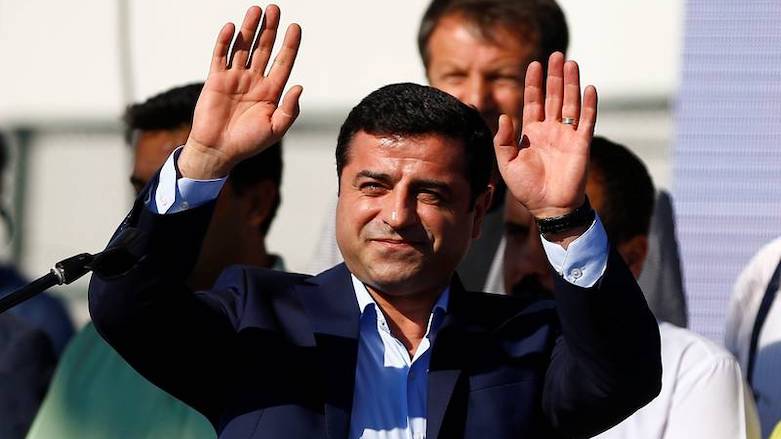European parliament calls for release of jailed Kurdish political leader in Turkey

ERBIL – The EU Parliament on Thursday called in a resolution for the immediate and unconditional release of Kurdish opposition politician Selahattin Demirtas, detained now for more than four years by Turkish authorities.
Demirtas remains jailed despite two European Court of Human Rights rulings in favor of his release.
Read More: European court calls for ‘immediate release’ of Kurdish official jailed by Turkey for 4 years
The European parliament also demanded, “that all politically motivated charges against him and fellow members of the opposition HDP (pro-Kurdish Peoples' Democratic Party) party be dropped.”
Since the collapse of a peace process between the Turkish government and the Kurdistan Workers’ Party (PKK) in 2015, some 16,300 HDP members have been detained with 3,500 of them receiving prison sentences, party officials told the Mezopotamya news agency in November 2019.
“Turkey’s sustained backsliding on the independence of the judiciary and the disregard shown by the Turkish judiciary and authorities for rulings by the European Court of Human Rights are of great concern,” the EU Parliament resolution stated.
It called on Turkish authorities “to put an end to its judicial harassment of human rights defenders, academics, journalists, spiritual leaders, lawyers and members of the lesbian, gay, bisexual, transgender and intersex communities.”
The MEPs underlined “that respecting and applying the rulings of the European Court of Human Rights would go some way to confirming that the desire to turn a new page in EU-Turkey relations, expressed by President Erdoğan and other top government officials on 9 January of this year, is sincere.”
This was a reference to a videoconference in which Turkish President Recep Tayyip Erdogan, EU foreign policy chief Josep Borrell, and European Commission President Ursula von der Leyen all participated.
Erdogan’s office later said in a statement that Turkey wants to turn a new page in its relations with the EU in 2021.
The news website Politico reported that Turkey is trying to repair its relations with EU countries, including France and Greece, in order to also improve its relationship with the new Biden administration that is expected to be more critical of Turkey than the previous administration.
EU countries such as Greece and France have in the past called for sanctions against Turkey due to its drilling for natural gas in the East Mediterranean. Reuters recently reported that Germany and Italy are more reluctant to sanction Turkey.
Antony Blinken, Biden’s choice for US Secretary of State, on Tuesday called Turkey a “so-called strategic – partner,” and said the Biden administration would review sanctions against Ankara for buying the Russian S-400 air defense missile system, Reuters also reported.
However, the European Parliament said that “improved EU-Turkey relations are fully dependent on, among other things, tangible improvements in respect for democratic principles, the rule of law and fundamental rights within Turkey.”
Turkish Foreign Minister Mevlut Cavusoglu, the High Representative of the European Union for Foreign Affairs, and Borrell met on Thursday in Brussels.
“Last year has been a complicated year for these relations. Recently, we have seen, from both parts, an improvement in the overall atmosphere and some important steps,” Borrell said.
However, he underlined, “intentions and announcements need to be translated into actions.”
Former Turkey rapporteur of the European Parliament and senior socialist EU lawmaker Kati Piri told Kurdistan 24 on Thursday that for “years now, every now and then, we hear Turkish authorities talking about improving ties and democratic reforms.”
“So far, only talk; no action taken. The release of Demirtas and (dissident civil society figure Osman) Kavala are a pre-condition to take the intentions of Ankara seriously.”
Editing by John J. Catherine
